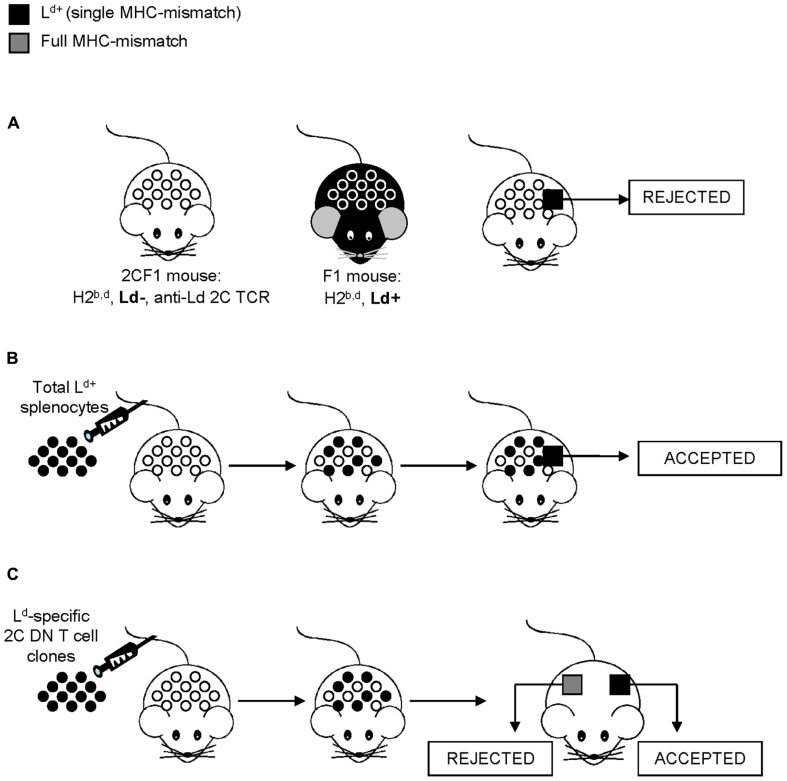FIGURE 1.
Induction of allograft tolerance by the pre-transplantation infusion of donor-specific spleen cells or DN T cells. This model takes advantage of the antigen-specific 2C TCR transgenic system and skin grafts to facilitate the study of allograft tolerance, where the 2C TCR transgene is alloreactive to the Ld MHC class I molecule. (A) C57BL/6 (H2b) mice are bred to BALB/c (H2d) mice to generate F1 mice (H2b,d) thus bearing the Ld MHC molecule (black mouse). C57BL/6 2C transgenic mice (H-2b) are bred to BALB/c (H2dm2) mice, which are a BALB/c Ld loss mutant (H2d, Ld-; Rubocki et al., 1986), to generate 2CF1 mice (H2b,d, Ld-) bearing the anti-Ld TCR (white mouse). Due to a single MHC-mismatch, skin grafts from Ld+ F1 mice are rapidly rejected by the 2CF1 mice. (B) However, the transfer of donor spleen cells from Ld+F1 mice to 2CF1 mice (Ld-) prior to the Ld+ skin graft transplantation results in graft survival. (C) Immunoregulatory 2C DN T cell clones obtained from 2CF1 TCR transgenic mice (Ld-) prevent the rejection of single MHC-mismatch, allogeneic (Ld+, in black) skin grafts. However, full MHC-mismatch, third party grafts (in gray) were rejected.

